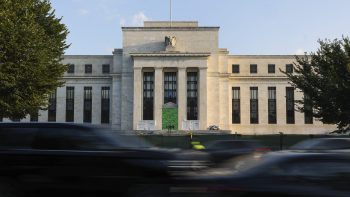Econ 201 quiz: Explain Quantitative Easing
STEVE CHIOTAKIS: The Federal Reserve program to help the economy known as Quantitative Easing ends today. Quantitative, because it involves a vast quantity of money. $600 billion. Did the program ease banks into freeing up more of their money?
Peter Cohan has an economic consulting firm in New York and he’s with us now to explain it to us. Good morning Peter.
PETER COHAN: Good morning Steve.
CHIOTAKIS: I want you to sort of scramble your brain for a second and imagine that you’re talking to somebody on a talk show — not a business program. What do you tell them when they say, “What the heck is quantitative easing?”
COHAN: It’s giving money to people including businesses and consumers and it’s coming through the Federal Reserve.
CHIOTAKIS: So giving money how though? Because I didn’t get a check.
COHAN: No, what happened was that the bond investors got a check which were basically banks. Over the last seven months or so the Federal Reserve bought back $600 billion worth of bonds. So they’re trading bonds and in exchange for the bonds that they’re buying back they’re putting cash into the hands of those investors who own the bonds. And here’s the funny part — the banks turn around and invest that money in government bonds instead of lending it out. That’s why it had no effect, because essentially it went from the Fed to the banks and back to the Fed again.
CHIOTAKIS: What were the long term effects?
COHAN: Well, they tried QE1, that worked a little bit better. Actually it stabilized the system. QE2 basically did nothing. And maybe in August when they have their meeting in Jackson Hole they might decide to come up with some new method for stimulating the economy but the fact of the matter is that the key issue in this economy is coming up with 13.9 million jobs for all those people who are looking for work. And companies are doing just fine without hiring people. They had record profits in 2010. So, basically we’re not solving the problem.
CHIOTAKIS: Maybe that refreshing air in Wyoming will inspire the Fed for something different, we don’t know.
COHAN: They probably will announce something in August.
CHIOTAKIS: All right, Peter Cohan thank you so much.
COHAN: Thanks Steve.
There’s a lot happening in the world. Through it all, Marketplace is here for you.
You rely on Marketplace to break down the world’s events and tell you how it affects you in a fact-based, approachable way. We rely on your financial support to keep making that possible.
Your donation today powers the independent journalism that you rely on. For just $5/month, you can help sustain Marketplace so we can keep reporting on the things that matter to you.


















